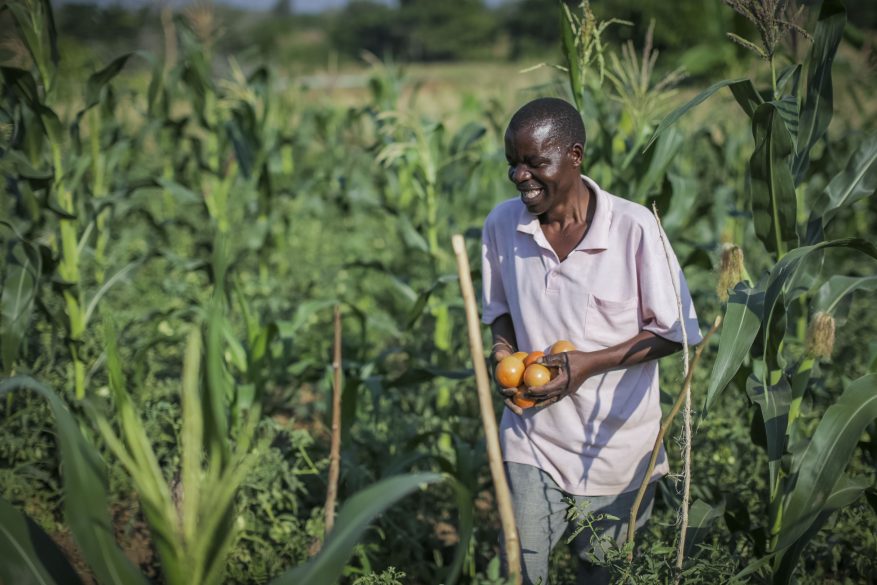Pictured: Robert Raff, Malawi.
World Food Day 2023 takes place on October 16th under the theme: ‘Water is life, water is food. Leave no one behind.’
Water is absolutely essential to life on earth, including the production of our food. Agriculture accounts for 72% of freshwater withdrawals. In addition to this, climate change, urbanisation and population growth mean that our planet’s water resources are declining. Today, 2.4 billion people live in water-stressed countries, according to the UN.
For millions of the small farming families that Self Help Africa work with, access to water is vital. But this is becoming more challenging to achieve as climate change causes extended periods of drought and water sources to dry up. Without clean water, an increasing number of people will struggle to grow enough food to feed their families sufficiently.
At Self Help Africa, climate-smart agriculture approaches are central to all our work supporting agricultural development. We support farmers with training to help nourish soil, conserve moisture, intercrop and use water and land as efficiently and sustainably as possible.
Irrigation schemes and kits have been introduced in many of our programmes. Typically, water is dispersed from an elevated container through rows of rubber piping, which are perforated at intervals to allow drops of water to seep out. Seeds are planted beside each perforation, ensuring that every drop of water is used productively.
One example was an irrigation scheme we established in Gabisaa, Ethiopia. One farmer who benefitted, Tekleye Gebre, initially felt that the land in the region wasn’t suited to growing traditional crops. Tekleye trained in horticulture production, received vegetable seed, and access to a modern community irrigation scheme providing a reliable source of water for their vegetables. “Having access to water immediately made us less vulnerable to the climate. Our lives have changed for the better” said Tekleye.
By equipping farmers with the knowledge and tools to manage water efficiently, we aim to enhance their resilience to climate change and improve food production.
Through our Water, Sanitation and Hygiene (WASH) strategy, we aim to help at least two million people improve their sustainable access to safe drinking water and basic sanitation services over the next five years.
Goal six of the Sustainable Development Goals (SDGs) is ‘Clean Water and Sanitation.’ It aims to achieve universal and equitable access to safe and affordable drinking water for all by 2030 which would mean a four-fold increase in progress is needed.
World Food Day promotes global awareness and action to improve our food systems and alleviate hunger. An essential part of this will be sustainable agricultural practices that preserve our natural resources like water, and the climate. Let’s ensure no one is left behind.

